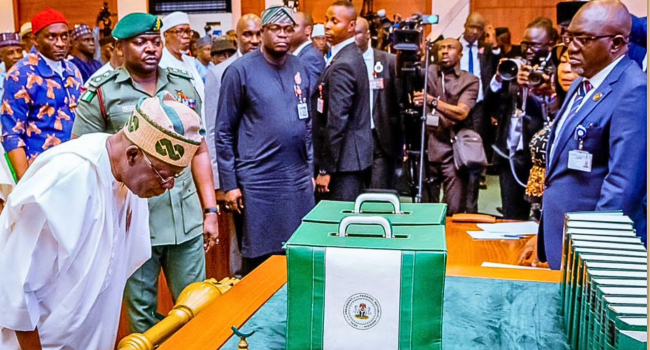OGUN, Kano, and Akwa Ibom States have emerged as the biggest beneficiaries of the Federal Government’s ₦163 billion allocation for Zonal Intervention Projects (ZIPs), popularly known as constituency projects, in the 2025 budget.
News Point Nigeria reports that the allocations, captured in budget data released by the Budget Office of the Federation and analysed by the civil society group Tracka, reveal sharp disparities across states, raising fresh debates over transparency, accountability, and the political nature of the ZIP scheme.
According to the breakdown, Ogun State leads with ₦8.44 billion, followed by Kano with ₦6.46 billion and Akwa Ibom with ₦5.34 billion.
Other major beneficiaries include Abia (₦4.50bn), Kaduna (₦4.27bn), and Gombe (₦3.86bn).
On the other end of the spectrum, allocations to states such as Jigawa, Katsina, and Sokoto stood at ₦1.42 billion each, while the Federal Capital Territory (FCT) received the least with ₦1.10 billion.
Observers note that the disparities are less a reflection of developmental needs and more an outcome of the political bargaining power of lawmakers from different states.
A sectoral breakdown of the ₦163bn ZIP fund shows that empowerment initiatives—including distribution of motorcycles, sewing machines, grinding machines, and cash grants—took the lion’s share at ₦35.42 billion, representing more than 20% of the total.
Other key allocations include:
Agriculture: ₦27.33 billion
Solar Energy: ₦10.6 billion
Education: ₦10.2 billion
Health: ₦7.85 billion
Road Projects: ₦5.06 billion
Water Projects: ₦4.28 billion
Electricity: ₦1.18 billion
This distribution again highlights lawmakers’ preference for short-term empowerment over long-term infrastructure, despite ongoing complaints from citizens about underdeveloped sectors like health and education.
Zonal Intervention Projects, first introduced to allow lawmakers nominate grassroots projects—have long been controversial. Critics argue they are prone to poor implementation, duplication, and misuse, often serving as avenues for political patronage rather than development.
Civil society organisations, including Tracka, have repeatedly called for greater transparency and community involvement in ZIP execution.
“Every year, billions are earmarked for constituency projects, yet Nigerians hardly feel the impact at the grassroots.
“This raises serious questions about equity, accountability, and whether these funds are being used in the best interest of citizens,” Tracka noted in its analysis.
The ₦163bn ZIP allocation is part of the broader ₦54.99 trillion 2025 federal budget, presented by President Bola Tinubu and passed by the National Assembly in December 2024.
The budget seeks to strike a balance between infrastructure, social spending, and fiscal consolidation. Yet, the rising share of ZIPs underscores the political weight lawmakers attach to constituency projects, even as government struggles to fund critical sectors.
As the 2025 budget cycle kicks off, questions remain on whether Nigerians will finally see real impact from ZIPs or if the projects will once again fuel political patronage and public mistrust.







